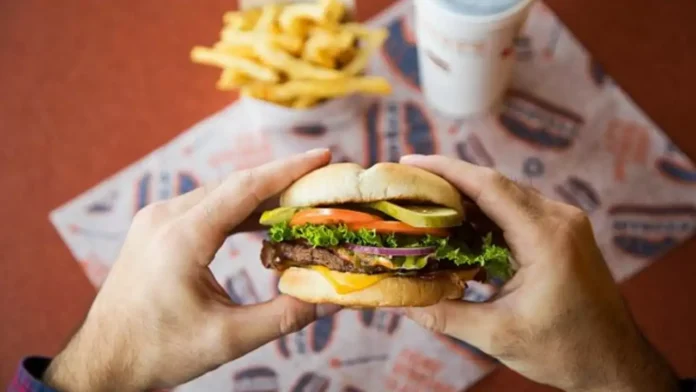The fast-food industry faced significant underperformance in the previous fiscal year. Following a strong performance in fiscal 2022 and the first half of fiscal 2023, revenue growth for quick-service restaurant (QSR) brands slowed down in the latter half of 2022–23 due to subdued demand and competition from food aggregators. Third-quarter results for the last fiscal year revealed ongoing weakness in both top-line and bottom-line growth across the sector, compounded by tepid market sentiment.
Companies have pointed to weaker demand due to high inflation as a primary factor. Third-quarter results released by these companies indicate that despite a slight easing of inflation, the industry-wide demand continued to face challenges. Foot traffic for dine-in remained subdued, with management remarks noting a further decline in demand following Deepavali.
Even with a weaker starting point and an extra day from the leap year, it’s anticipated that same-store sales growth will stay subdued in the fourth quarter of fiscal 2024. Kotak Securities notes that the slowdown in the QSR industry has persisted longer than initially expected.
Zomato Ltd. and Swiggy have swiftly broadened their footprint across India, extending their reach to include even smaller restaurants.
Continue Exploring: Food delivery app surge leaves QSRs struggling with revenue and margins amidst fragmented sales: BNP Paribas Report
Zomato witnessed a substantial increase in monthly active restaurant partners, soaring from 61,000 in fiscal 2019 to 254,000 in the December quarter of fiscal 2024. Meanwhile, Swiggy boasted 272,000 active restaurants by fiscal 2023. This growth has expanded their customer base, notably benefiting smaller eateries.
Nevertheless, BNP Paribas Exane Research indicates that this expansion is dampening QSR sales, as the proliferation of choices through food delivery platforms is fragmenting sales. This is likely contributing to the decline in the average daily sales of the QSR industry, alongside the overall weakness in demand.
Zomato’s average count of active restaurant partners has multiplied over fourfold since FY19.
Major QSR companies have experienced a shift in market share. Jubilant FoodWorks Ltd. has faced significant pressure, with its share decreasing by 200 basis points from 35.1% in the first quarter of fiscal 2023 to 33.1% in the third quarter of fiscal 2024. Similarly, Westlife Foodworld Ltd. and Barbeque Nation Hospitality Ltd. also saw a decline in market share during the same period.
Devyani International Ltd., Sapphire Foods India Ltd., and Restaurant Brands Asia Ltd.’s Burger King division experienced a growth in market share.
Jubilant FoodWorks has experienced the most significant decline in market share, dropping by 200 basis points, whereas Devyani International has gained 150 basis points.
Kotak noted the difficulty in pinpointing the exact timing of the recovery but anticipates the downturn to reach its conclusion shortly. The brokerage foresees the recovery commencing in the second half of fiscal 2025.
Kotak emphasized the encouraging sequential improvement in the same-store sales trends of Domino’s, operated by Jubilant in India, during the fourth quarter. This offers hope for a bottoming out and gradual demand recovery in the current fiscal year.
Continue Exploring: Wow! Momo secures INR 70 Crore funding boost from Z3Partners to fuel expansion and R&D efforts
Sapphire Foods stands out as Kotak’s top choice among QSR companies, attributed to its lower earnings risk and reasonable valuations, closely followed by Devyani International.
Despite the soft demand scenario and underperformance, companies have maintained their store-opening guidance and remain optimistic about a gradual recovery.
Jubilant FoodWorks stated in its Q3 earnings call that the current slowdown seems cyclical, reflecting the influence of inflation on mass discretionary consumption. However, this doesn’t alter their outlook on the food service industry.
Devyani International also remarked that the current weak consumer sentiment and subdued consumer spending are expected to be short-lived, with anticipation of recovery over the next few quarters.
Nuvama doesn’t attribute the structural slowdown in the industry solely to increased penetration and competition from food delivery apps. The brokerage suggests that if demand at the lower end normalizes, it would be beneficial for QSR companies.
Nuvama noted that the substantial increase in store additions over the past two years has put pressure on industry margins. However, the brokerage now observes signs of moderation, which could positively impact QSR margins.
Nuvama pointed out that the share prices of QSR companies have nearly halved since their peak in 2021, making them an attractive entry point.
For instance, the share prices of Barbeque Nation and Restaurant Brands are now trading 73% and 52% lower from their respective all-time highs.
Continue Exploring: India’s QSR sector set to soar to USD 38.71 Billion by 2029, but non-compliance threatens growth trajectory
The valuations of profitable QSR companies also sit below their peak levels.
Jubilant FoodWorks’ price-to-earnings ratio currently stands at 89.15, down from its peak of 165.87 in fiscal 2021. Similarly, Sapphire Foods’ current P/E ratio is 38.52, a decrease from 190.5 in fiscal 2021, according to Bloomberg.
Devyani International, Sapphire Foods, and Westlife Foodworld have garnered the highest number of ‘buy’ calls, with 85% of analysts covering Sapphire Foods expressing bullish sentiment towards the stock.
Analysts hold an equal number of bearish and bullish sentiments on Jubilant FoodWorks, with 17 ‘buy’ and ‘sell’ calls each. Among QSR companies, Restaurant Brands commands the highest average of 12-month analyst price targets, while Westlife Foodworld holds the lowest.





